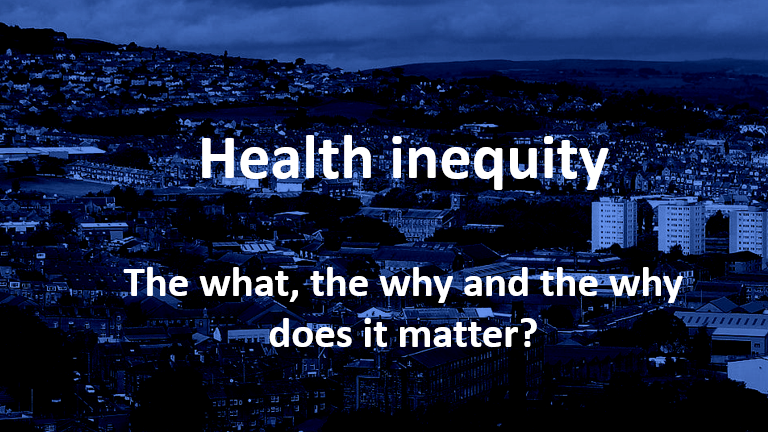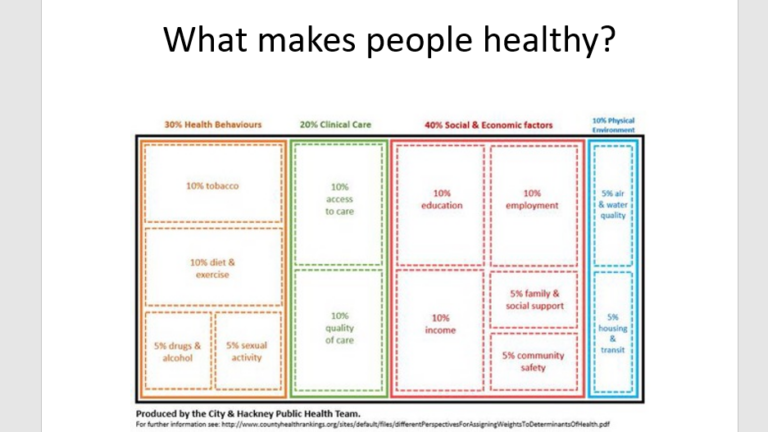
This was a great introductory session to Health Inequalities and the research and theories behind some of the great work that is done in Deep End GP practices across the country.
We started by discussing the social determinants of health, and how it is harder to be healthy when someone lives in a deprived area, with fewer resources and more social challenges throughout life. These might include living conditions, financial security, employment conditions, social exclusion, gender, early child development, addiction, family support, and many other factors. We looked at Maslow’s hierarchy of need, and also at the difference between equity and equality.
We discussed the politico-social determinants of health as well – the Inverse Care Law and the importance of the GP’s role as an advocate for patients who are suffering due to social conditions and exclusion.
As it was the session before Christmas, Rachel had us playing a game of Health Inequalities Pictionary Team Relay – I can’t really describe this but it was an absolutely inspired idea!
The session reinforced to me that as GPs we have a unique opportunity to advocate for these patients and to strive to provide the right sort of care to patients whose health is adversely affected by social factors. Hospital colleagues do not have the continuity of care or the link to community organisations that it is possible to develop as a GP, and by working specifically in one community as we do GPs, we can develop community links that will affect the health outcomes of our patients in the long term, through social means rather than medical.
The session reinforced to me that as GPs we have a unique opportunity to advocate for these patients and to strive to provide the right sort of care to patients whose health is adversely affected by social factors. Hospital colleagues do not have the continuity of care or the link to community organisations that it is possible to develop as a GP, and by working specifically in one community as we do GPs, we can develop community links that will affect the health outcomes of our patients in the long term, through social means rather than medical.
I don’t think at any point through medical training did we have such a clear lecture or seminar on the social determinants of health – this session really made me think about our goal as doctors – we need to treat medical conditions as they arise but when such huge disparities exist in rates of disease between the richest and poorest in society, it makes far more sense to reduce these inequalities so that a huge proportion of health problems do not occur in the first place. Prevention is always better than cure – we should be encouraging policymakers to look at the facts and to make policies for health and social care which address this enormously important issue.
However you could take this to mean that all doctors should give up and go into politics or public health – I don’t think that! By treating patients and getting to know our local populations, we can gather our own evidence of what social policies do to health outcomes. And by being aware of this, we can tailor our treatment to the individual patient and communities, so that we can influence change this way as well as advocating on a national level or through organisations that we support (e.g. the RCGP has some activity on the subject of health inequality).
I found this session incredibly useful and inspiring – and I would encourage anybody who is interested to know further to look at the learning modules on the Fairhealth website as they cover a lot of this material very concisely. Unfortunately you can’t play “Health Inequalities Pictionary Team Relay” on the website, but I would encourage Rachel to make this game commercially available one day…
Dr Helen Barclay
Location: The Hepworth, Wakefield
Session facilitator: Rachel Steen

